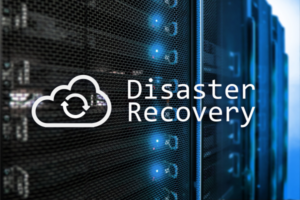How Decentralized Identity Will Revolutionize Web 3.0
Written by Ronald Bowron
I recently attended the Gartner IAM Summit 2023 and was somewhat surprised at how much attention is now being paid to Decentralized Identity. I am surprised because it’s been quite some time since the Sovrin Foundation, founded in 2016, has called for this new paradigm in identity management. Seems Gartner is now seeing it as a foundational component of the Web 3.0 infrastructure.
Web 3.0, the next generation of the internet, is poised to transform the way we interact with each other and with technology. And according to the closing keynote speaker Homan Farahmand, VP Analyst, Gartner, at the heart of this transformation is decentralized identity, a technology that allows users to control their own personal data and identities in a secure and tamper-proof manner using blockchain technology.
What Does Decentralized Identity Offer Web 3.0?
Decentralized identity offers numerous benefits that could revolutionize the way we interact with the internet. Here are just a few ways that decentralized identity could impact Web 3.0:
- Increased Privacy and Security: With decentralized identity, users can control their own personal data and choose what information to share with different services and organizations. This can significantly increase privacy and security, as users no longer have to rely on centralized authorities to store and manage their personal data.
- Improved User Experience: Decentralized identity can also improve the user experience by enabling seamless authentication and identity verification across different services and platforms. With decentralized identity, users can easily manage and control their identities and credentials, and use them across multiple platforms and services.
- Greater Trust and Transparency: Decentralized identity can increase trust and transparency by enabling users to verify the authenticity of information and credentials. With verifiable credentials, users can easily prove their identity and credentials, which can be useful in a variety of contexts, such as employment, education, or healthcare.
- New Business Models: Decentralized identity could also enable new business models and revenue streams, as it allows for more secure and efficient data sharing and monetization. With decentralized identity, users can control their own data and choose to share it with third-party services or platforms in exchange for value or rewards.
To illustrate the potential of decentralized identity, let’s consider an example. Imagine you’re applying for a job, and the employer asks for proof of your education credentials. With traditional identity systems, you might need to contact your school or university and have them send official transcripts, a process that can take days or even weeks. With decentralized identity, however, you can easily share your verifiable education credentials with the employer in just a few clicks, providing instant proof of your qualifications.
While decentralized identity, verifiable credentials, and digital wallets offer many benefits, there are still some adoption barriers that need to be addressed. These include:
- Lack of awareness: Many people are not aware of the existence or benefits of these technologies.
- Security concerns: Some people may be hesitant to use decentralized identity and verifiable credentials due to security concerns such as the risk of hacking, fraud, or identity theft.
- Technical complexity: Some people may find digital wallets too complicated to use, particularly older individuals or those who are not familiar with technology.
- Lack of interoperability: Not all digital wallets and identity systems are compatible with each other, which can create challenges for users.
- Limited acceptance: While these technologies are becoming more widely accepted, there are still some organizations and services that do not accept them.
- Changing of the Guard: Major Cloud Organizations that have profited from leveraging digital identities are not going to release their hold on centralized identity easily, and may continue to leverage their influence to keep customers using their services vs promoting the adoption of truly self-sovereign digital wallets.
The impact of decentralized identity on Web 3.0 is expected to be significant, and as the technology continues to evolve, we can expect to see even greater adoption and innovation in the space. Decentralized identity has the potential to revolutionize the way we manage our identities and personal data, and enable a more secure, private, and user-friendly internet. As we enter the era of Web 3.0, decentralized identity will be a critical component of this new framework.
Of course, this will all need to be worked into your IAM roadmap in the future. If you haven’t made one already, or if you need to update yours, talk to Idenhaus about the latest technologies that might impact that framework in the near future.






